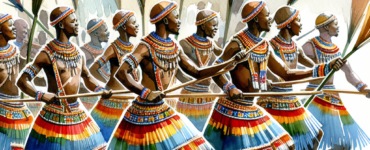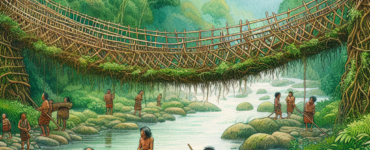Have you ever wondered how ancient civilizations understood the cosmos without the help of modern telescopes? Among the various intriguing accounts of astronomical knowledge in ancient cultures, the Dogon tribe of Mali, Africa, stands out for their detailed understanding of the stars, especially their knowledge of the Sirius star system long before modern astronomers confirmed its existence with advanced technology.
The Dogon are a tribal people in West Africa who have fascinated researchers and astronomers worldwide with their advanced astronomical understanding, particularly their knowledge regarding Sirius, the brightest star in the Earth’s night sky((https://www.space.com/21702-sirius-brightest-star.html )). According to their traditions, the Dogon people have known about Sirius and its compact, dense companion star, Sirius B, which is invisible to the naked eye, for centuries1.
This intriguing information came to light through the work of French anthropologists Marcel Griaule and Germaine Dieterlen in the 1930s, who, after spending a significant amount of time with the Dogon, reported that the tribe had sophisticated astronomical knowledge, including a detailed understanding of the Sirius star system2. The Dogon’s information about Sirius B, a star that wasn’t photographically observed by Western scientists until 1970((https://www.gaia.com/article/did-this-african-tribe-originate-in-another-star-system )), puzzled many and suggested that the Dogon might have had contact with an advanced extraterrestrial civilization3.
However, this theory is not without its skeptics. Some researchers suggest that the Dogon’s knowledge could have come from modern sources, introduced to them before Griaule and Dieterlen’s studies. Critics argue that there’s no documented evidence of the Dogon’s knowledge predating these encounters, suggesting that the anthropologists’ findings could have resulted from a mixture of the Dogon’s traditional lore with information acquired from Europeans4.
Despite the controversies, the Dogon’s astronomical knowledge remains an extraordinary example of ancient wisdom and the capacity of the human mind to understand cosmic phenomena. It highlights an essential aspect of human culture: our innate desire to explore and make sense of the world around us, reaching as far out as the stars above. The Dogon’s connection to Sirius invites us to ponder the depths of ancient knowledge and the possible means through which such information was obtained, whether through meticulous observation over generations or from external sources yet to be understood fully.
Let the mysteries of the Dogon tribe inspire you to look up at the stars with curiosity and wonder, remembering that long before us, ancient eyes were already scanning the heavens, mapping the cosmos with precision and dedication.







































Add comment